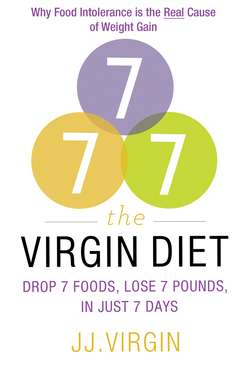Читать книгу The Virgin Diet: The US Bestseller - JJ Virgin - Страница 21
Оглавление
Like allergies, food sensitivities are a type of immune reaction, but they mobilize a different type of antibody than food allergies do – not IgE, but its cousin, immunoglobulin G, or IgG. These IgG antibodies produce symptoms, too, but they act more slowly than IgE antibodies. Whereas allergic reactions are swift, food sensitivity symptoms don’t appear until several hours or even a few days after you’ve eaten, making it very difficult to link them to the problem food.
Food sensitivities keep your immune system fired up on a chronic basis.
Here’s another way in which allergic responses differ from sensitive ones: allergic responses are acute, whereas sensitivity responses are chronic. In other words, an allergy is a specific response: your immune system is activated, it flares up, it sends out its aggressive battery of IgE antibodies and, hopefully, it calms down. Food sensitivities, by contrast, can keep your immune system fired up on a chronic basis because you keep consuming the foods that set them off. If yoghurt, eggs, soy milk and whole-wheat bread are a frequent part of your diet – and especially if you’re eating them every day – your system is overwhelmed with problem foods, and your immune system never really calms down. This creates a number of problems, particularly inflammation, as I’ll explain a bit later. But first, let’s play food detective. Here are the typical symptoms of food sensitivity. Do any of them sound familiar to you?
Digestive trouble, such as bloating, wind, constipation or diarrhoea
Sleep issues, such as fatigue, insomnia or waking in the middle of the night
Congestion, sneezing and coughing
Muscle aches and joint pain
Dark circles under your eyes
Dull, lifeless hair
Skin problems, including acne and rosacea
Mood problems, such as lack of focus, brain fog, depression, anxiety or irritability
Poor or unsteady energy
Weight gain
Premature ageing
If you’re struggling with any of these symptoms, you are almost certainly struggling with food sensitivities and perhaps with other types of food intolerance as well.
Food sensitivity is incredibly common. It affects at least 75 per cent of us and is a major factor in weight gain and weight retention. Again, the good news is that the Virgin Diet will help you cope with your food sensitivities, first by pulling problem foods from your diet and then by healing your system so you might eventually be able to tolerate some of those foods.
